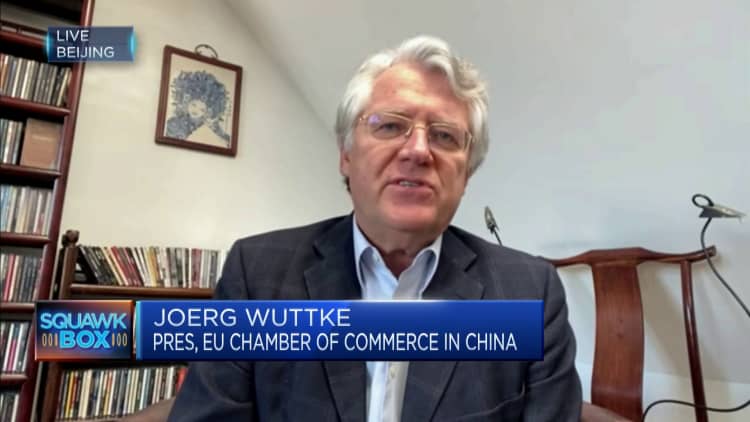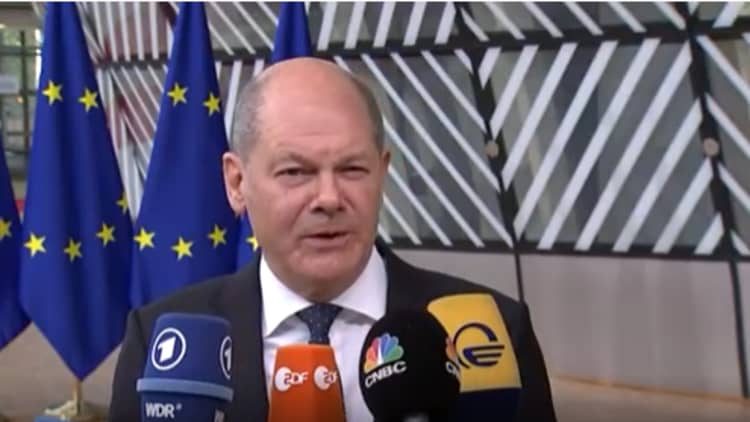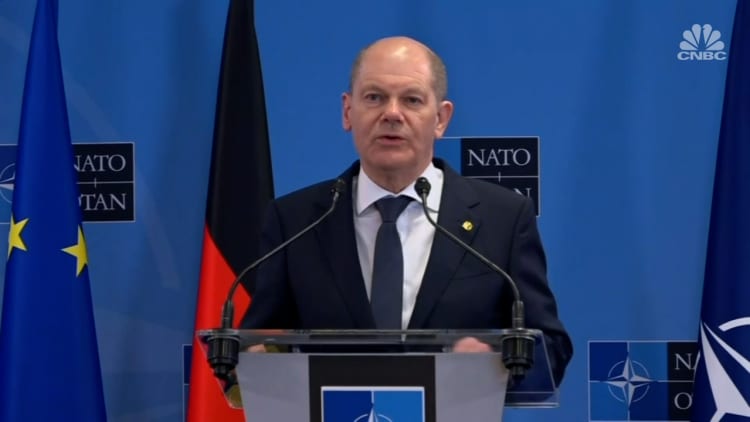
The top European business representative in China downplayed concerns over Germany's economic reliance on China as German Chancellor Olaf Scholz makes his maiden in-person visit to Beijing.
President of the EU Chamber of Commerce in China Joerg Wuttke told CNBC's "Squawk Box Asia" on Friday that many of Germany's imports from China are replaceable, when asked if the European country had become dependent on China for many of its goods.
He said, however, Germany needed to better diversify its sourcing of critical materials from China, such as rare earths and pharmaceutical precursors, adding that the chancellor would need to have "very clear language" with Beijing about these issues.
Experts largely agreed with Wuttke but warned that Germany needed to step up its diversification from with China.
"Of course, you can paint a sort of picture that you're dependent on Chinese furniture, toys, underpants, and maybe mobile phones and computers — but actually, that's not the case, you can source it from elsewhere," Wuttke said.
"Where we're really dependent on is rare earths, pharmaceutical precursors … that's where we have to look into, but these are 20, 30 items out of thousands of items."
"So the dependency discussion is totally overblown, I would say, because we can actually do something about it."
Like any commercial relationship, working with China is about managing risks, Wuttke said.
"The risk of not being in China outweighs the risk of being here. So in a way, we have to manage these risks. And we have to look into the areas where we're really short," Wuttke said, adding that Germany had been managing them quite successfully so far.
"The market is simply too big to neglect."
Wuttke also said that dependencies between Germany and China are mutual. China too, depended on Germany for its exports.
Frederick Kliem, E.U. and international relations expert from the S. Rajaratnam School of International Studies, largely agreed with Wuttke's comments, given Wuttke's extensive knowledge of Germany's stakes in China.

But he acknowledged Germany does rely on China.
"Undoubtedly, Germany's dependence on China is too great on at least three levels: dependency on the consumer market, on China as a production base, and on import of some critical products, such as rare earth elements," he said.
"[But] hysteria is never a good policy guide. What needs to happen is not decoupling, abandoning economic interdependence, or even signing onto some form of containment policy."
He said Germany must reduce its dependency so that it is neither susceptible to blackmail by Beijing, nor unable to implement sanctions.
Former permanent secretary at Singapore's Ministry of Foreign Affairs Bilahari Kausikan told CNBC that "the Germans have become over optimistic."

Scholz's visit to China this week has ruffled feathers in Europe amid increasing political pressures for Germany to reduce its reliance on China.
The chancellor is visiting Beijing with a delegation of 12 key German business leaders for less than 24 hours.
In response to the widespread criticism, Scholz explained in an op-ed for the Frankfurter Allgemeine Zeitung and Politico on Thursday that he would not seek seek decoupling from China, but pursue diversification and economic resilience

